41 Insightful Quotes By Jeremy Rifkin
Jeremy Rifkin is an American social theorist, writer, public speaker, economist, activist and political advisor. He is renowned for writing books that focus on the changing economic climate on a global level. He has also been a highly influential advisor and has even served the European Union as an advisor for around two decades. On the other hand, he has also been the advisor on matters related to economy and global warming to heads of states including Angela Merkel of Germany, Nicolas Sarkozy and the Chinese government among others over the course of his illustrious career. Some of his most well-known books include ‘The European Dream’, ‘The Zero Marginal Cost Society’, ‘The Hydrogen Economy’, ‘The Age of Access’, ‘The Third Revolution’, ‘The End of Work’ and ‘The Biotech Century’. Rifkin has also been a very successful public speaker and has delivered lectures at some of the most important platforms across the globe. He is an outstanding orator and over the course of several decades, he has expressed his thoughts and views on the state of the global economy and the latest trends that shape the world which have become popular and are frequently quoted by people. We bring to you a collection of some of Jeremy Rifkin’s most important quotes which have excerpted from his books, writings, lectures, work and interviews.

Today we are raised with the notion that to be secure is to be financially autonomous. Amassing wealth is viewed as the primary rite of passage to a secure, autonomous existence.
When we seed millions of acres of land with these plants, what happens to foraging birds, to insects, to microbes, to the other animals, when they come in contact and digest plants that are producing materials ranging from plastics to vaccines to pharmaceutical products?
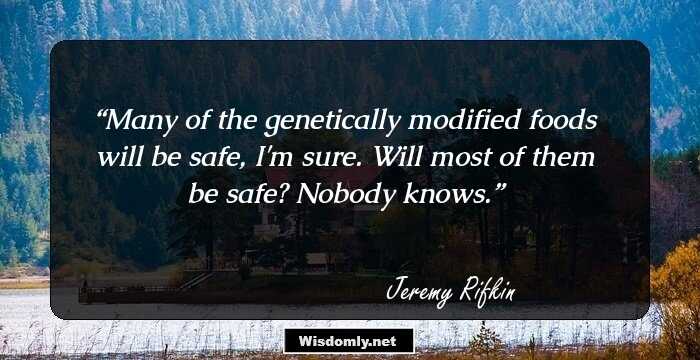
Many of the genetically modified foods will be safe, I'm sure. Will most of them be safe? Nobody knows.
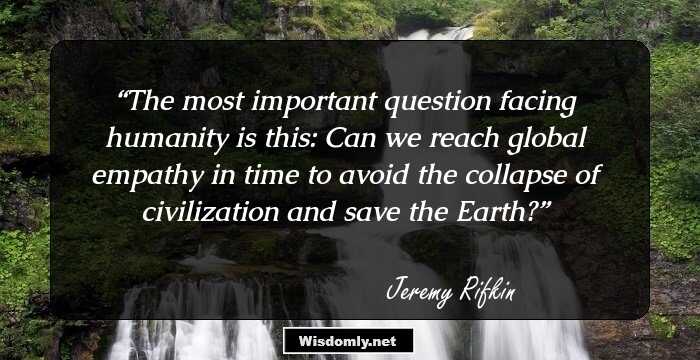
The most important question facing humanity is this: Can we reach global empathy in time to avoid the collapse of civilization and save the Earth?
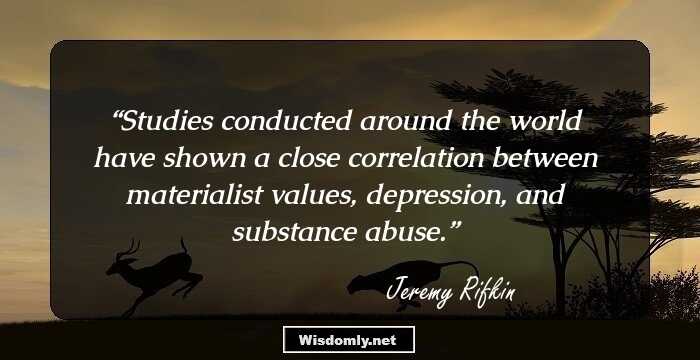
Studies conducted around the world have shown a close correlation between materialist values, depression, and substance abuse.
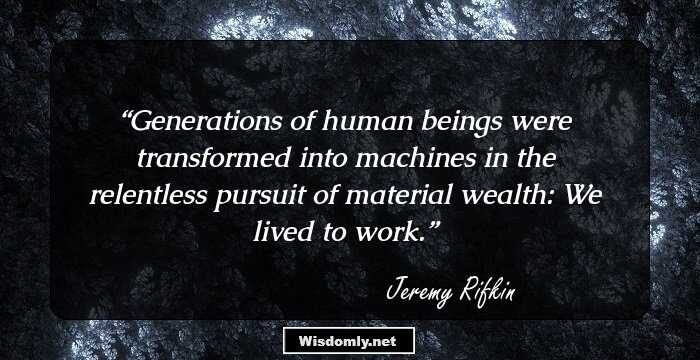
Generations of human beings were transformed into machines in the relentless pursuit of material wealth: We lived to work.
The electronic media introduced this idea to the larger audience very, very quickly. We spent years and years and years meeting with activists all over Europe to lay the groundwork for a political response, as we did here.

You can eliminate, for example, a Brazil nut gene if you know that it will create an allergenic effect.
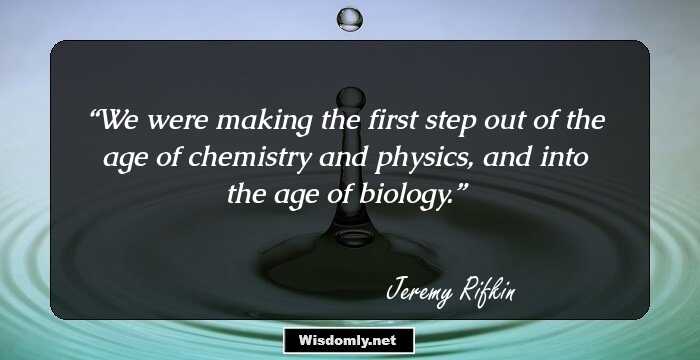
We were making the first step out of the age of chemistry and physics, and into the age of biology.

So my attorneys brought litigation in the U.S. federal courts. The judge ruled in our favor.
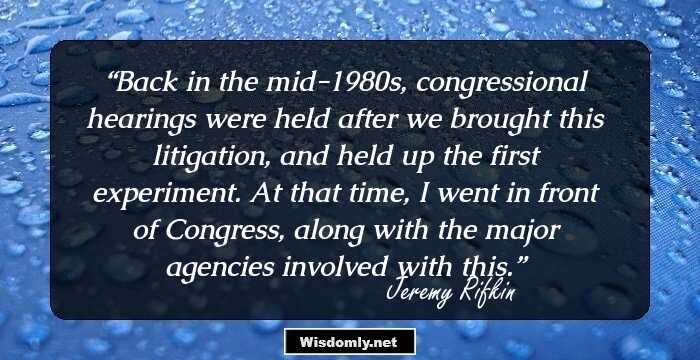
Back in the mid-1980s, congressional hearings were held after we brought this litigation, and held up the first experiment. At that time, I went in front of Congress, along with the major agencies involved with this.
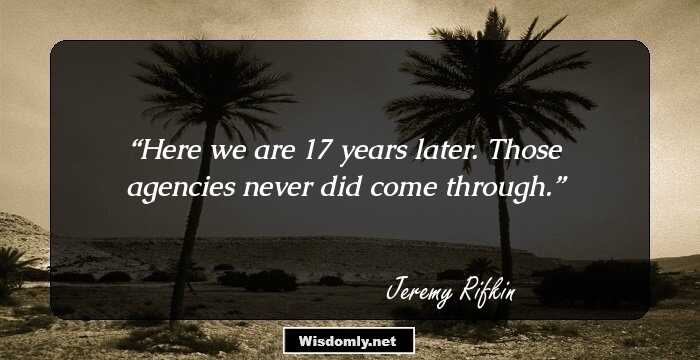
Here we are 17 years later. Those agencies never did come through.
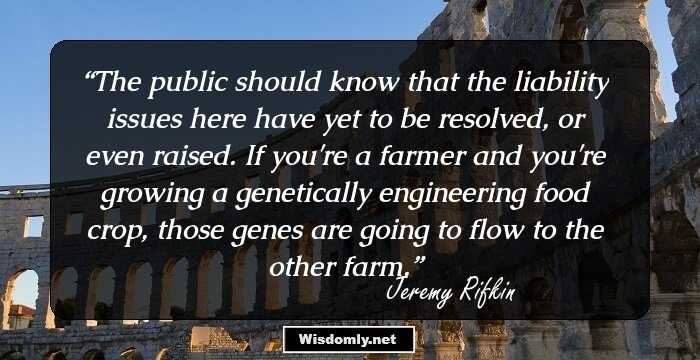
The public should know that the liability issues here have yet to be resolved, or even raised. If you're a farmer and you're growing a genetically engineering food crop, those genes are going to flow to the other farm.
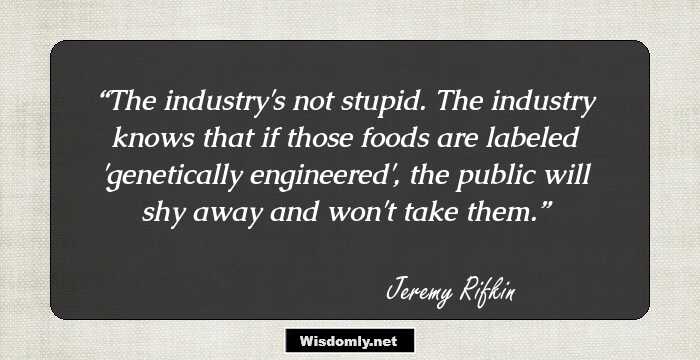
The industry's not stupid. The industry knows that if those foods are labeled 'genetically engineered', the public will shy away and won't take them.
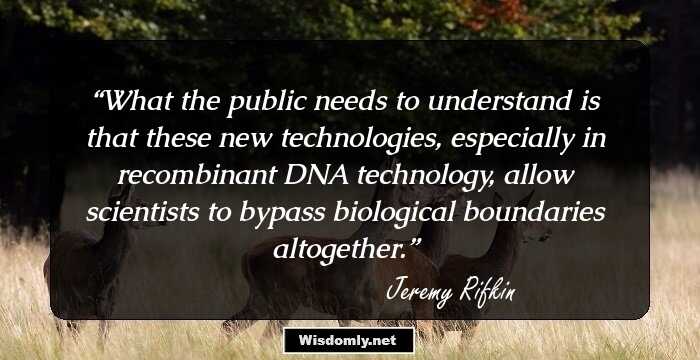
What the public needs to understand is that these new technologies, especially in recombinant DNA technology, allow scientists to bypass biological boundaries altogether.
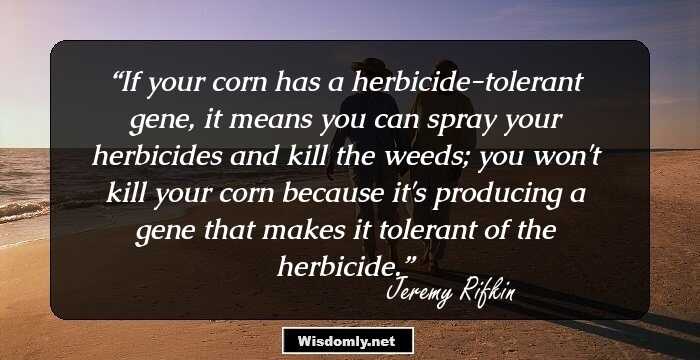
If your corn has a herbicide-tolerant gene, it means you can spray your herbicides and kill the weeds; you won't kill your corn because it's producing a gene that makes it tolerant of the herbicide.
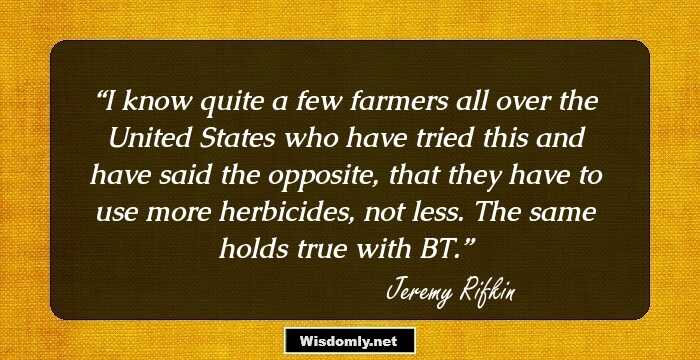
I know quite a few farmers all over the United States who have tried this and have said the opposite, that they have to use more herbicides, not less. The same holds true with BT.
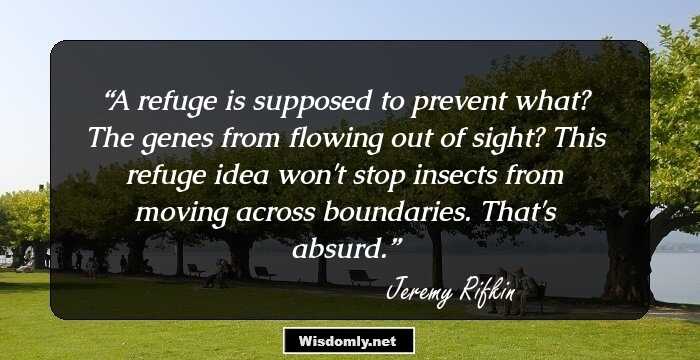
A refuge is supposed to prevent what? The genes from flowing out of sight? This refuge idea won't stop insects from moving across boundaries. That's absurd.
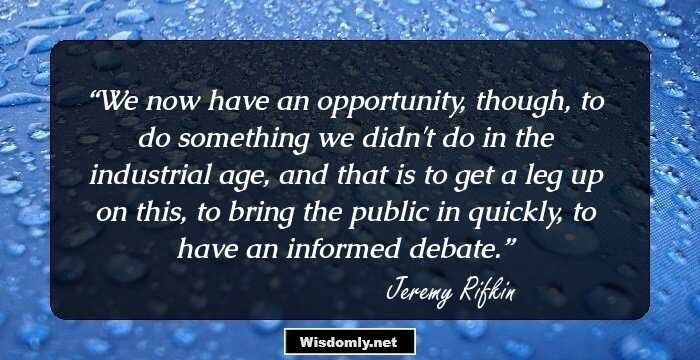
We now have an opportunity, though, to do something we didn't do in the industrial age, and that is to get a leg up on this, to bring the public in quickly, to have an informed debate.
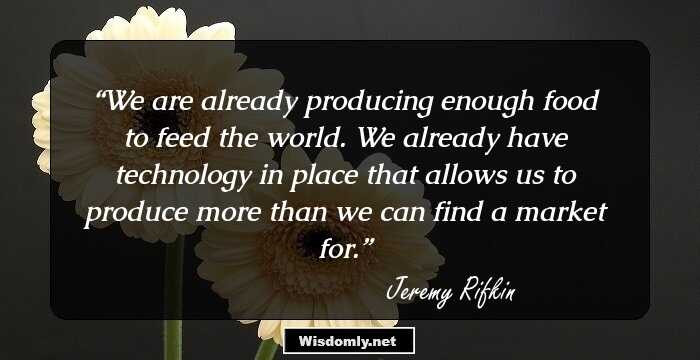
We are already producing enough food to feed the world. We already have technology in place that allows us to produce more than we can find a market for.
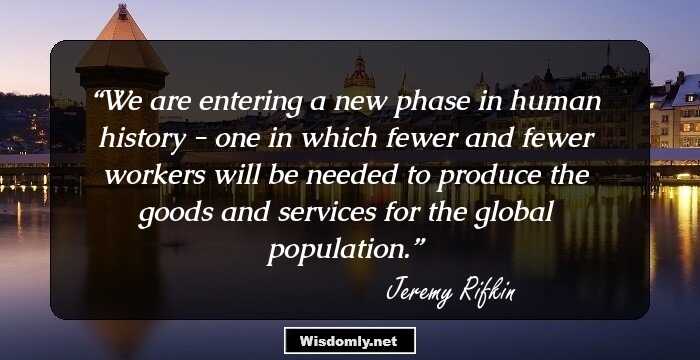
We are entering a new phase in human history - one in which fewer and fewer workers will be needed to produce the goods and services for the global population.
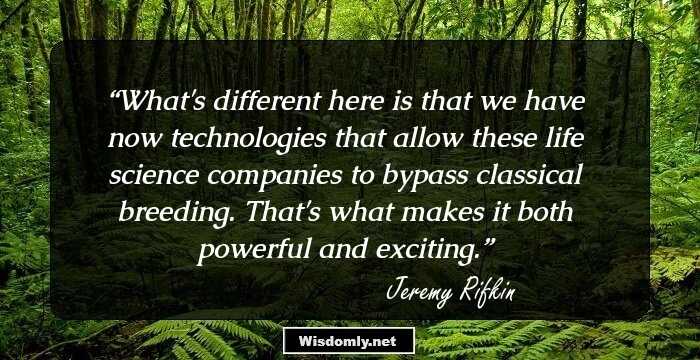
What's different here is that we have now technologies that allow these life science companies to bypass classical breeding. That's what makes it both powerful and exciting.
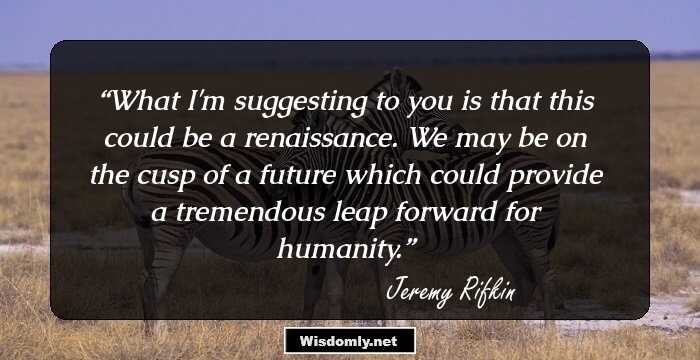
What I'm suggesting to you is that this could be a renaissance. We may be on the cusp of a future which could provide a tremendous leap forward for humanity.
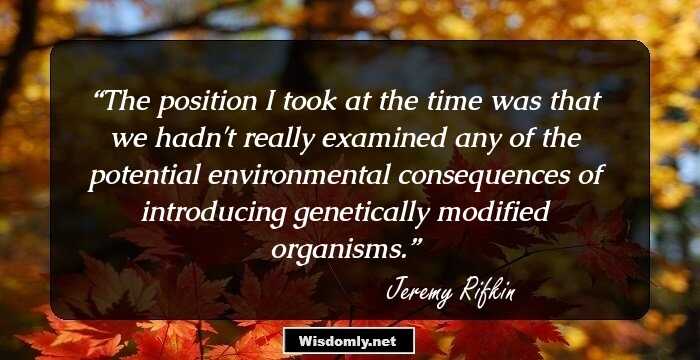
The position I took at the time was that we hadn't really examined any of the potential environmental consequences of introducing genetically modified organisms.
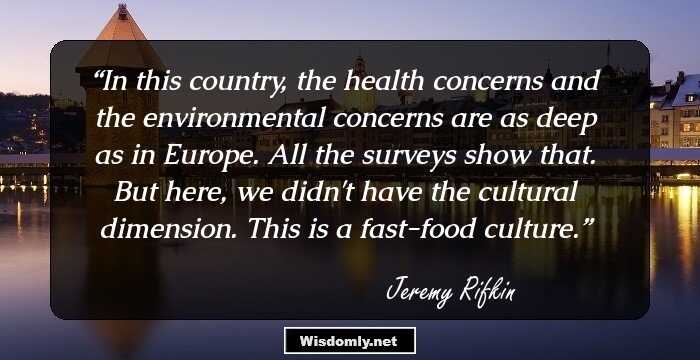
In this country, the health concerns and the environmental concerns are as deep as in Europe. All the surveys show that. But here, we didn't have the cultural dimension. This is a fast-food culture.
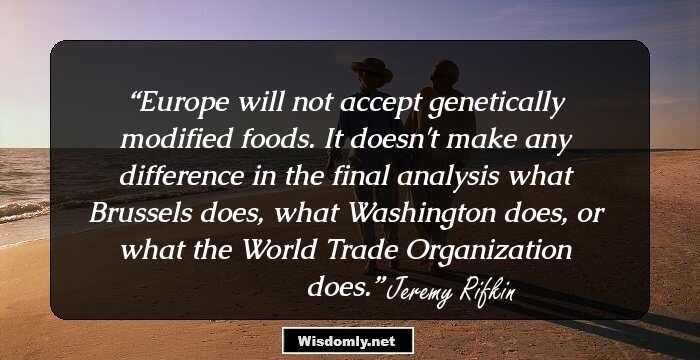
Europe will not accept genetically modified foods. It doesn't make any difference in the final analysis what Brussels does, what Washington does, or what the World Trade Organization does.

They're now turning those seeds into intellectual property, so they have a virtual lock on the seeds upon which we all depend for our food and survival.
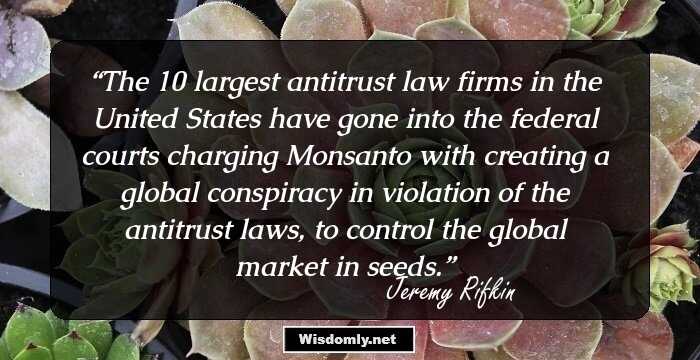
The 10 largest antitrust law firms in the United States have gone into the federal courts charging Monsanto with creating a global conspiracy in violation of the antitrust laws, to control the global market in seeds.
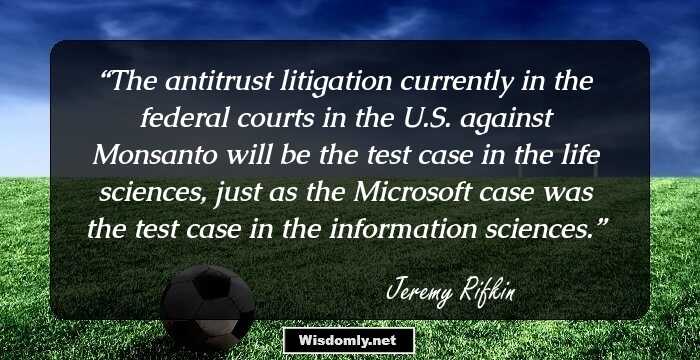
The antitrust litigation currently in the federal courts in the U.S. against Monsanto will be the test case in the life sciences, just as the Microsoft case was the test case in the information sciences.
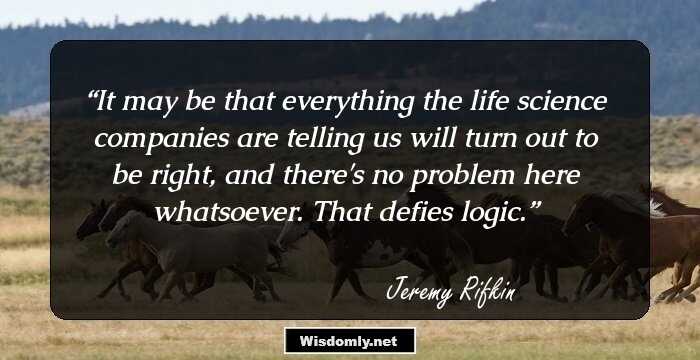
It may be that everything the life science companies are telling us will turn out to be right, and there's no problem here whatsoever. That defies logic.










